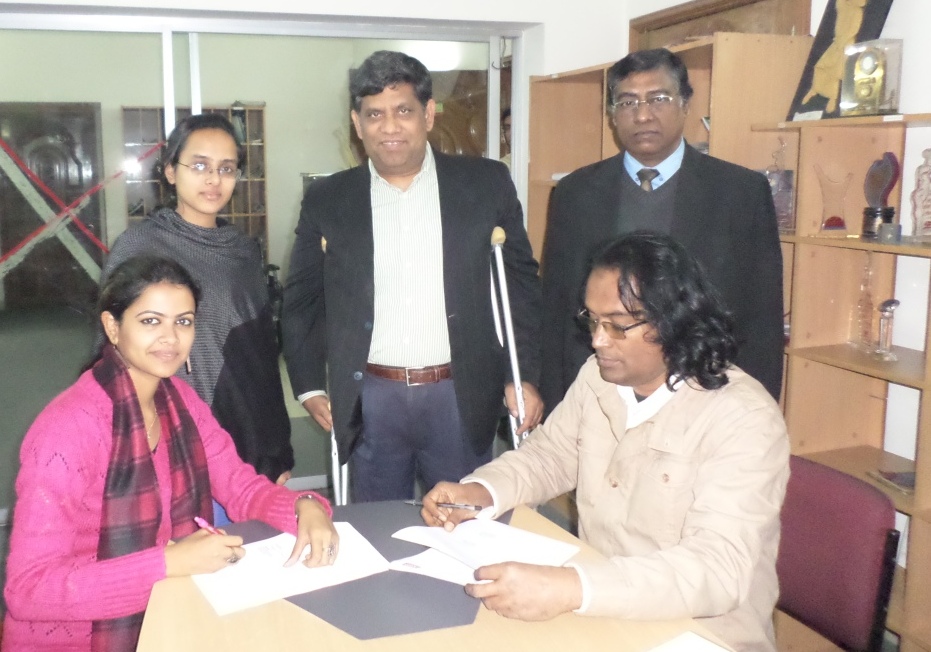
In 1988, Mosharraf Hossain was denied a job in the Bangladesh civil service. This wasn’t because he didn’t have the skills to do the job; he had a Masters in Economics from the University of Dhaka, but because he had a disability. He had contracted polio at the age of three, and was left with a mobility impairment, which according to the rules then in place meant he could not be a civil servant.
But let’s dig deeper in tothis discrimination that Mosharraf experienced. What does it mean to have a disability? What is disability?
When Ishtiaque Hossain of the Social innovation Lab, asked in an meeting what BRAC field staff understood the word disability to mean, most people replied “Okkhom” which roughly translates to “incapable of or inability to do work”. One of the disabled participants talking to Hezzy Smith, a disability rights activist who did an exploratory study at BRAC, mentioned he doesn’t like the term ‘disabled’ because it means “okkhom” and Hezzy clarified that ‘disability’ doesn’t mean incapable it just means that full functionality requires some reasonable accommodation. He explained how people who wear glasses are not labeled as disabled, because they have been able to accommodate themselves easily. Another participant strongly feels people with a disability should not be termed as “differently abled” simply because they are ‘not differently abled’ and that it disregards the effort a person with disability makes to function in society like people without disability while also “othering” them.
It’s society that dis-enables persons with certain conditions. So then the question is why?
The same reason why any kind of stereotyping takes place; to label people makes it easier to deal with them. To most people and organizations disability inclusion is a difficult thing to do. People think of huge infrastructure changes and investments like ramps, and braille systems. To label people as ‘okkhom’ and leave them out seems to be much easier for society, and in this way discrimination seems to serve an interest.
The truth is that it doesn’t. One in seven people around the world have a disability, or 15% of the world’s population–that means one billion people have one form of a disability. Josh Goldstein, director of Economic Citizenship and disability inclusion at ACCION, pointed out disability is latent in all of us, because 40% of all humanity will become disabled by the age of 60.
And if that isn’t convincing enough the economic costs of disabilities are more than a country like Bangladesh can bear. Global evidence shows that 5-7% of GDP is lost due to the lack of inclusion of persons with disability in the economy, worldwide. A study conducted by the Bangladesh Institute of Development Studies on the Economics of Disability and Children at Risk in Bangladesh shows that disability is both a cause and consequence of poverty. The paper identifies that in Bangladesh the economic cost of disability is comprised of:
- Children with disabilities losing out on school
- Lack of employment of People with Disability
- Adults miss out on many employment opportunities so that they can take care of people with disability in families
- Children helping family members with disability miss out on educational opportunities?
The above mentioned four examples cost the Bangladesh economy about 1.18 billion US Dollars every year which is 1.74% of our GDP.
There are many ways in which being more inclusive of people with disabilities benefits everyone. With access to education and employment the world’s most vulnerable population can not only become self-sufficient but also prevent economic loss for our country. With a vision of empowering poor people and helping them realize their potential, to work for and with people with disabilities is aligned with BRAC’s mission and values. People with disabilities create diversity in the work place, it creates an environment where having the necessary accommodations and being able to perform work duties to the best of one’s ability matters. This improves workplace morale and what better way to live up to our value of ‘Inclusiveness’? People with disabilities can be an untapped source of skills and talent, growing numbers of companies find it profitable to hire people with disabilities as they have appropriate skills, strong loyalty and low rates of absenteeism.
Mosharraf Hossain who was denied the opportunity to work in the Civil service of Bangladesh because of his disability, is currently the Country Director of Action on Disability and Development (ADD) International in Bangladesh. A non-profit organization that organizes poor people with disabilities and helps them gain access to different social and economic services while building their capacities. ADD works with over 17,000 people with disabilities covering one third of the country. As Duncan Green pointed out in his blog, disabled people’s organizations such as ADD have increased recognition of issues around disability. ADD recently signed an MoU with BRAC to help us ensure financial inclusion of people with disability. Mosharraf not only proved his capability to lead and provide civil service to people with disability—he works with them to empower them.
So here’s the last question: in whose interest is it to discriminate?